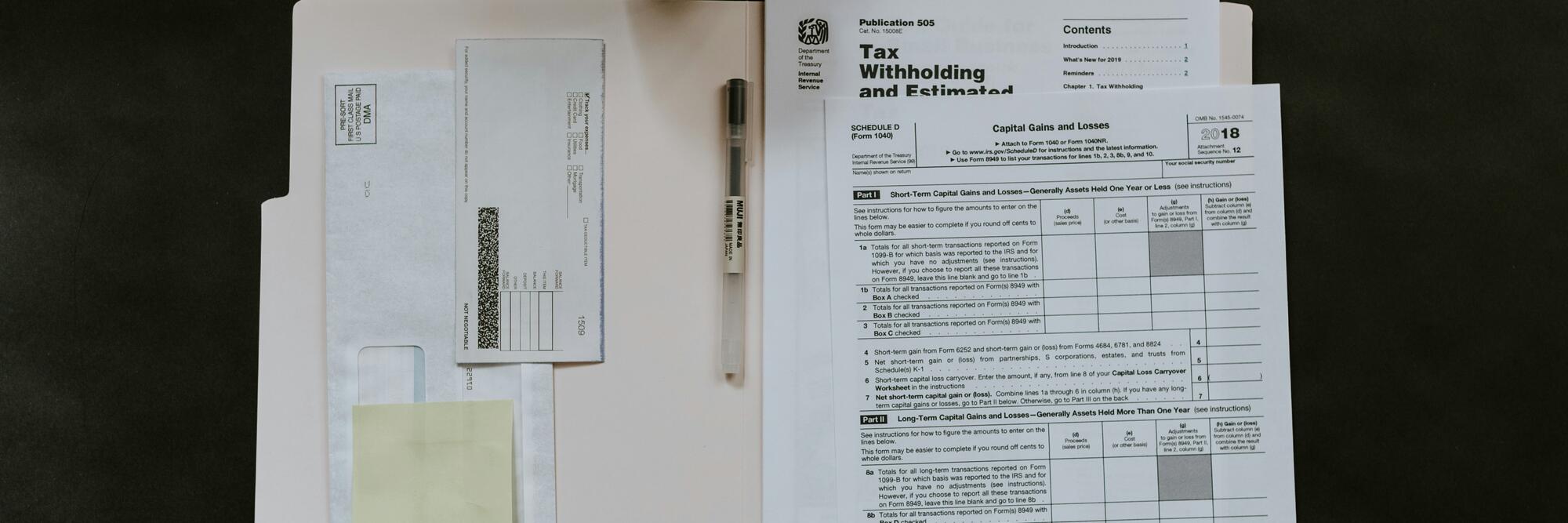This article is provided by Nathalie Goldstein, founder and CEO of MyExpatTaxes, the first global US expat tax software designed for Americans living abroad. Their Enrolled Agent-approved guides cover everything US citizens moving or living overseas need to know about filing their US taxes, staying compliant, and maximizing expat tax benefits.
Living abroad brings exciting opportunities, but if you’re a US citizen or Green Card holder, your tax responsibilities follow you across borders. The US is one of only two countries that taxes its citizens on worldwide income, regardless of residence. Even if you’ve built a new life abroad, you must still report your income to the US government. But what if you’re already a tax resident in your host country and paying local taxes? Fortunately, by using expat tax benefits strategically, most Americans abroad end up owing little to nothing in US taxes.
This guide walks you through what you need to know for the 2025 tax year (filed in 2026), so you can face your obligations confidently and keep more of what you earn.
Understand Your US Tax Filing Obligations From Abroad
Yes, the United States taxes based on citizenship rather than residency. As a US citizen or Green Card holder, you must file a US tax return each year, no matter where you live or where your income is earned.
Even very small amounts of income can trigger a US tax filing requirement. For example, if you are married and filing separately, just $5 of worldwide income is required for you to file.
For the 2025 tax year (filed in 2026), here are the income thresholds that will determine when you must file a return:
| Filing Status | Income Threshold 2025 tax year (filed in 2026) |
|---|---|
| Single | $15,000 |
| Married Filing Jointly | $30,000 |
| Married Filing Separately | $5 |
| Self-Employed | $400 |
| Head of Household | $22,500 |
Even when your income is already taxed locally, US rules still require you to report worldwide earnings on your federal return. The good news is that expat tax benefits are in place to reduce, and often eliminate, the risk of paying tax twice on the same income. These include tax treaties, along with exclusions and credits provided under US tax law.
Know Your Expat Deadlines
If you’re living abroad on April 15, you automatically get until June 15, 2026, to file your 2025 return, no forms required. This two-month cushion is your first shield against late-filing penalties.
Take Advantage of Your Automatic Expat Extension
Use those extra two months to gather income statements, confirm foreign taxes paid, and ensure your return is accurate the first time around. Filing right the first time means avoiding costly penalties and fines down the road.
Remember: Payment Still Due April 15
Even with extra filing time, any tax you owe is still due by April 15, 2026. Interest starts the next day if you don’t pay on time.
File Form 4868 If You Need More Time
Need even more time? File Form 4868 by June 15, 2026, and you’ll extend your return deadline to October 15, 2026. Just keep in mind this extends the time to file, not the time to pay.
Don’t Overlook Foreign Account Reporting
As a US expat, filing your tax return may not be your only requirement. You may also need to disclose foreign bank accounts and assets if they cross certain thresholds. These rules fall under the Foreign Bank Account Report (FBAR) and the Foreign Account Tax Compliance Act (FATCA), which the IRS uses to ensure that overseas assets are reported.
File FBAR if Accounts Top $10,000
If the total maximum value of your foreign bank accounts combined exceeds $10,000 at any point during the year, you must file an FBAR (FinCEN Form 114). This form is submitted electronically and separately from your tax return.
Watch FATCA Asset Thresholds
You may also need to report assets under FATCA (Form 8938). Expats must report foreign assets worth $200,000 at year-end or $300,000 at any time during the year. Thresholds are higher for married couples filing jointly and lower for Americans living in the US.
Don’t Pay More Tax Than You Need To

The United States has treaties and agreements with many countries to help prevent double taxation and clarify which country has the right to tax certain types of income. In addition, US tax provisions for expats can further reduce, and often eliminate, any US tax owed while living abroad.
Use the FEIE to Exclude Earned Income
The IRS offers Americans earning income abroad a powerful tool to lower their US tax bill. The Foreign Earned Income Exclusion (FEIE) allows you to exclude up to $130,000 for the 2025 tax year of foreign wages, salaries, or self-employment income from US taxation.
- Bona Fide Residence Test – You live as a resident in another country for a full calendar year.
- Physical Presence Test – You spend at least 330 days outside the US during any 12-month period.
The FEIE is claimed on Form 2555 when you file your annual tax return, and the same form can also be used to claim the Foreign Housing Exclusion.
Turn Housing Costs into Tax Savings
On top of the FEIE, expats may be able to exclude part of their housing expenses, such as rent, utilities, and insurance. The calculation is tied directly to the FEIE: only housing costs that exceed 16 percent of the FEIE limit can be excluded, and the standard cap is set at 30 percent of the FEIE. That means for 2025, any qualifying housing expenses above $20,800 can be excluded, up to a maximum exclusion of $39,000 with higher caps available in certain high-cost cities.
If you’re self-employed, the benefit is taken as a deduction rather than an exclusion, but the effect on your taxable income is the same.
Offset US Taxes with the Foreign Tax Credit (FTC)
The FTC provides a dollar-for-dollar credit for income taxes you’ve already paid to your host country. Unlike the FEIE, which only applies to earned income, the FTC can also cover passive income like dividends, interest, or rental income.
You can’t use the FEIE and the FTC on the same income, but you can use them strategically together. For example, you might claim the FEIE on your first $130,000 of earned income and then use the FTC to offset US tax on any income above that limit. Or you can simply apply the FTC to your passive income while the FEIE covers your salary or business earnings.
When coordinated this way, the two benefits can often bring your US tax bill down to zero.
You claim the FTC on Form 1116, and an added benefit is that unused credits can be carried forward for up to ten years or applied to the previous year.
Use the Child Tax Credit to Lower Your US Taxes
For the 2025 tax year, US taxpayers can reduce their federal tax liability by up to $2,200 for each qualifying child under age 17 through the Child Tax Credit (CTC). Of this amount, as much as $1,700 may be refundable under the Additional Child Tax Credit (ACTC). Keep in mind that you can’t claim the refundable portion of the Child Tax Credit if you use the FEIE. However, you may still qualify for the non-refundable part, reducing your US tax liability.
It’s important to remember that while the FEIE and FTC can reduce or even eliminate US income tax, they do not reduce self-employment tax.
Find Out if Your Host Country has a Tax Treaty with the US
A treaty clarifies which country you owe taxes to, and helps prevent paying twice.
The United States has tax treaties with more than 60 countries, designed to prevent double taxation and define which country has the right to tax different types of income, such as salaries, pensions, dividends, and business profits.
However, nearly all US treaties include a Savings Clause, which allows the US to continue taxing its citizens and Green Card holders as if the treaty did not exist. While this limits some benefits, treaties remain valuable for clarifying taxing rights and for supporting the use of the Foreign Tax Credit (FTC) to offset US liability on income already taxed abroad.
Know If a Totalization Agreement Protects You
The United States has totalization agreements with 30 countries to prevent expats from paying into two Social Security systems at the same time. These agreements determine which system you contribute to while working abroad.
Another key feature is that Social Security credits earned in the US and another country can be combined, helping expats qualify for benefits. This coordination ensures that years worked in both places count toward eligibility rather than being lost.
In short, these agreements can prevent you from paying into two Social Security systems at the same time.
Don’t Forget About Self-Employment Tax
If you are self-employed and earn $400 or more in a year, you must file a US tax return regardless of where you live. Self-employed Americans usually owe 15.3 percent in US self-employment tax on their net earnings.
Totalization agreements between the US and certain countries determine which Social Security system you pay into, preventing double contributions. In many cases, you’ll contribute to your host country’s system, while shorter assignments may keep you covered under the US system. If no agreement exists, you may be required to pay into both systems.
It’s important to note that while the FEIE and FTC can lower your US income tax, they don’t reduce self-employment tax.
Be Careful with Foreign Investments
US expats need to be cautious when investing overseas. Foreign mutual funds, ETFs, and other pooled investments are usually treated by the IRS as Passive Foreign Investment Companies (PFICs). These come with punitive tax treatment, complex reporting on Form 8621, and in many cases, taxes at the highest ordinary rates with added interest charges. The result? Your gains can quickly disappear.
To avoid these headaches, many expats stick with US-domiciled funds and ETFs, which follow familiar US tax rules and don’t trigger PFIC reporting. Some expats also invest directly in foreign stocks and bonds, which are not treated as PFICs, though you’ll still need to follow local country tax rules.
Keep Your Retirement Savings on Track Abroad
Living overseas doesn’t mean you have to stop building your nest egg. You can still contribute to retirement accounts like Traditional IRAs and Roth IRAs, as long as you have qualifying earned income and meet the income limits for your filing status.
For 2025, the annual contribution limit is $7,000 (or $8,000 if you’re age 50 or older). These accounts provide valuable tax advantages and help ensure your long-term savings stay on course, even while you’re living outside the US.
Catch Up Penalty-Free
Didn’t realize you had to keep filing US taxes while living abroad? You’re not alone. The IRS offers an amnesty program called the Streamlined Compliance Procedures, which lets qualifying expats get back on track by filing the last three years of tax returns and six years of FBARs, with no penalties.
This program is a lifeline for Americans who’ve unintentionally fallen behind and need to get compliant. It’s straightforward, and with the right guidance, you can catch up quickly and move forward stress-free.
Most expats who qualify under the streamlined program owe little or nothing by claiming benefits retroactively, sometimes even resulting in a refund.
Don’t Overlook Local Taxes and Residency Rules
Filing your US return is only part of the picture. Most countries also have their own tax residency rules, and living abroad often means you’re subject to those as well. A common standard is the 183-day rule – if you spend 183 days or more in a country during the year, you may be considered a tax resident there.
Becoming a tax resident usually means you must report worldwide income locally, not just income earned in that country. That’s why it’s essential to understand both US and local filing requirements, and how they interact under tax treaties and agreements.
Your Expat Tax Checklist

- Confirm you’re up to date on tax returns and FBARs
- Note key deadlines: April 15 (payment), June 15 (expat filing), October 15 (final extension & FBAR)
- Gather documents: income statements, proof of foreign taxes, account records
- Compare whether the FEIE or FTC gives you the bigger savings
- Record all foreign bank accounts and their highest balances
- Track days abroad for the Physical Presence Test
- Watch balances for FBAR and FATCA filing triggers
- Factor in local tax implications and rules
Work with an Expat Tax Professional
Having the whole tax picture, including US rules, local obligations, and how they overlap, is key to setting yourself up for success abroad. Careful planning helps you stay compliant, avoiding costly penalties and late fees, while making the most of expat tax benefits so you never pay more than you owe.
Cross-border taxes can be complex, so working with a Tax Professional specializing in US expat taxes is not only valuable but highly recommended. Don’t let tax worries hold back your life abroad. With the right support, you can stay current, optimize your tax strategy, and enjoy peace of mind.




